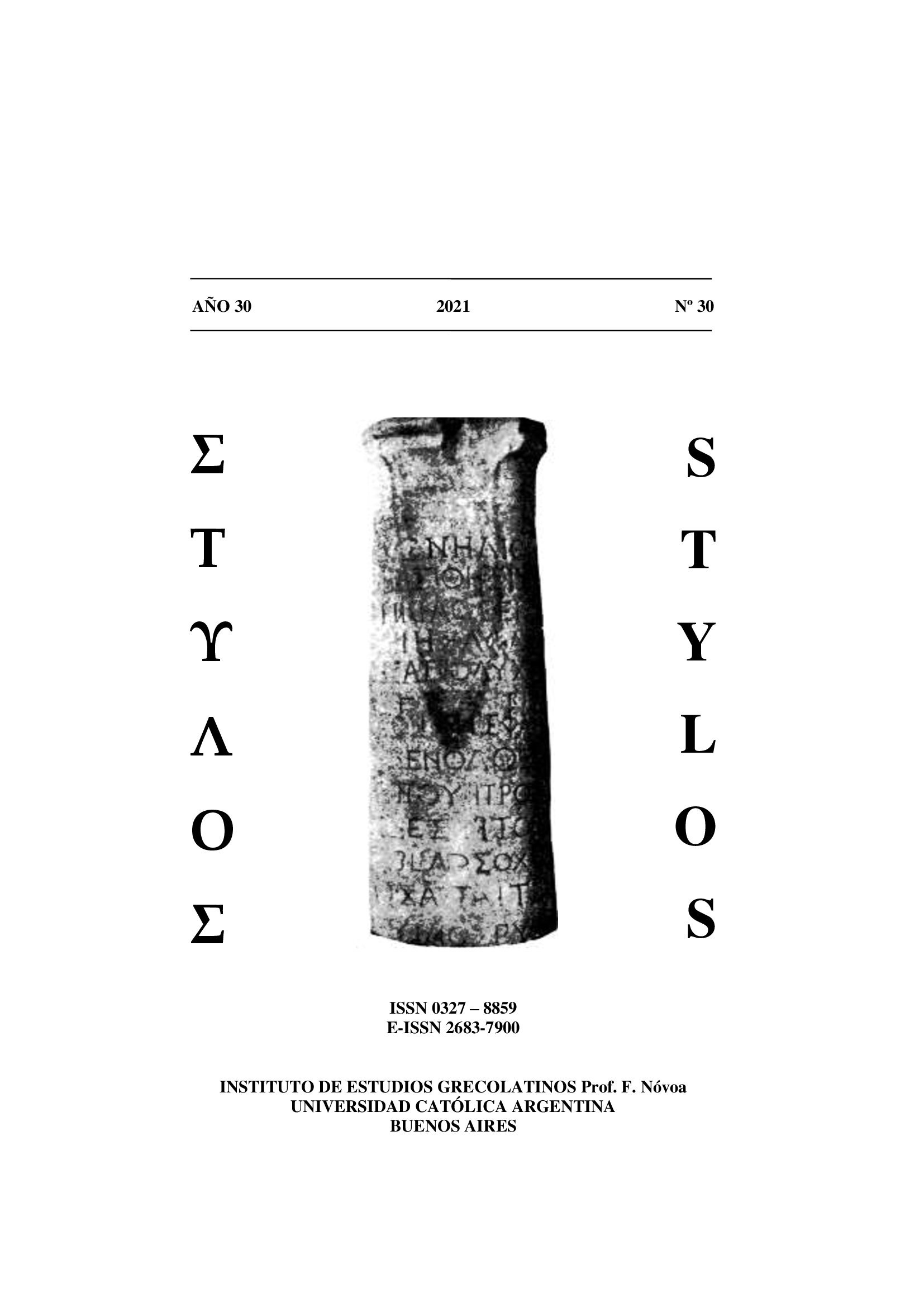EL SÓCRATES JENOFONTEO COMO MAESTRO EMOCIONAL: LA ESFERA PÚBLICA EN MEM. III.7. 1-9 DESDE UNA PERSPECTIVA ARENDTIANA
DOI:
https://doi.org/10.46553/sty.30.30.2021.p18-35Keywords:
Xenophon – Arendt – public sphere – emotions.Abstract
In Mem. III.7.1-9 Xenophon introduces a conversation held between the young Charmides and Socrates. The last one was trying to convince the first one to actively participate in the political affairs of the polis. The negative of Charmides was not rooted in a lack of capacities, since he had experience advising important Athenian officials in private meetings, but in the fact that he suffered from “shame” (αἰδώς) and “fear” (φόβος) of publicly showing himself to the mob.
How can the emotional variation of Charmides in relation to the public space involved be explained? I consider that, if the philosophy of Hannah Arendt is incorporated to the interpretation of the previous passage, light can be shed over this question. Particularly in The Human Condition, she claimed that one of the main characteristics of Athenian democracy was the clear demarcation between the public and the private spheres of life. The polis had been capable of creating a “space of appearance” in which its citizens entered so as their actions and speeches there performed were kept in the collective memory. Furthermore, the public realm “was the only place where men could show who they really and inexchangeably were” (1998: 41).
Therefore, Charmides emotions –the shame and fear of appearing in front of the mob– can be rooted in the fact a procedure took place in thar context which was totally absent in the private sphere: the construction of his civic identity as a citizen. What Charmides happened to do or say in the Assembly would become engraved in the collective memory of the polis.
Downloads
References
ARENDT, H. La Condición Humana, Buenos Aires: Paidós, 2020.
AZOULAY, V. "Cyrus, disciple de Socrate? Public et privé dans l’œuvre de Xénophon", Études platoniciennes, 2009 6: 153-173.
BARDI, J. B. “La población en la reflexión jurídico-política de Jenofon-te: el rol de los metecosatenienses en Póroi”, Synthesis, 2020 27 (2), 1-13.
BEVILACQUA, F. Senofonte. Memorabili, Turín: UTET, 2010.
CAIRNS, D. Aidōs: The Psychology and Ethics of Honour and Shame in Ancient Greek Literature, Oxford: Clarendon Press, 1993.
CANOVAN, M. “Politics as Culture: Hannah Arendt and the Public Realm”, 179 – 205. En HINCHMAN L. P. y HINCHMAN S.K. (eds.) Hannah Arendt: critical essays, New York: SUNY Press, 1994.
DORION, L. A. Xénophon. Mémorables, París: Les Belles Lettres, 2011.
EUBEN, P. “Arendt’s Hellenism”, 151-164. En VILLA, D. (Ed.) The Cambridge Companion to Hannah Arendt, Cambridge: Cambridge University Press, 2000.
HANSEN, M. H. “The Concepts of Demos, Ekklesia, and Dikasterion in Classical Athens”, Greek, Roman, and Byzantine Studies, 2010 50 (4).
HINCHMAN L. P. y HINCHMAN S.K. “Existentialism Politicized: Arendt’s Debt to Jaspers”, 143-178. En HINCHMAN L. P. y HINCHMAN S.K. (eds.) Hannah Arendt: critical essays, New York: SUNY Press, 1994.
ILLARRAGA, R. “Xenophon’s Psychology of Philotimia”, Greek, Roman, and Byzantine Studies, 2020 60 (2), 192–210.
KONSTAN, D. The Emotions of the Ancient Greeks Studies in Aristotle and Classical Literature, Toronto: University of Toronto Press, 2006.
MARCHANT, E. C., Xenophon. Xenophontis opera omnia, vol. 5. Ox-ford: Clarendon Press, 1920.
O'SULLIVAN, N. "Hellenic Nostalgia and Industrial Society" en De Crespigny, A., y Minogue, K., (eds.) Contemporary Political Phi-losophers, New York: Dodd, Mead and Company, 1975, 228-251.
STERNBERGER, D. "The Sunken City: Hannah Arendt's Idea of Politics", Social Research, 1977 44 (1),132-146.
TAMIOLAKI, M. "Public et privé dans le dialogue de Socrate avec Aris-tippe (Xén. Mém. II, 1, 1- 33)", Études platoniciennes, 2009 6, 141-151.
TAMIOLAKI, M. “Observaciones sobre la emoción y la persuasión en la Ciropedia de Jenofonte”, Archai, 2021 31, 1-42.
Downloads
Published
How to Cite
Issue
Section
License






